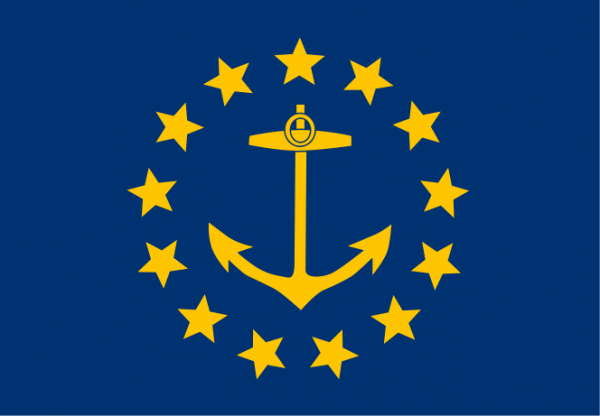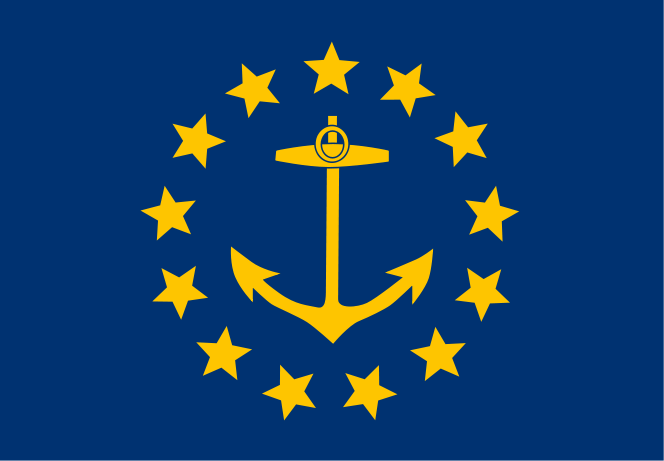
Rhode Island historian laureate Patrick Conley’s June 14th op-ed is written with the purpose of misleading rather than edifying the public about the origins and meanings of Rhode Island’s state flag. Conley is intent on casting the flag as a “prayer banner,” borrowing that term from the not-so-recent court case involving my niece Jessica Ahlquist and an actual prayer affixed to the wall of her Cranston public high school. The use of such a loaded term should be our first hint that Conley is more interested in polemics than history.
Rhode Island’s state flag is not a prayer banner and trying to present it as one is foolish. The flag is inscribed with one word “Hope” which as a prayer seems rather short and inadequate. Conley also makes much of the fact that our flag has an anchor on it, another word found in the Bible. Conley is correct that the words “Hope” and “Anchor” are found in the Bible, along with a slew of other words in common usage, such as love, gold and jackass, which perhaps for space limitations were omitted from the state flag.
That the women and men who founded Rhode Island were religious and Christian is not in dispute. That they named the city they founded “Providence” and adopted mottoes such as “Hope” and symbols such as anchors that can be found in the Bible should not be surprising. (Besides Providence, other place names in Rhode Island derived from the Bible are the islands, such as Prudence, Patience, Hope and Despair.) What is surprising is that these same very religious and committed people were uninterested in forcing others to believe as they did. They were uninterested in forcing violent or oppressive confrontations with those who did not believe as they did, or in establishing a law that respected their views more than others.
Instead, these very pious Christians established a government that separated church and state. Then they chose an anchor for a symbol, not a cross. They chose a motto, “Hope” that anyone, religious or not, could find meaning in. They did not choose the word “Jesus” or “God” or “Prayer.” They chose the word Hope, perhaps because that is how they lived. They hoped that their little experiment in tolerance and acceptance would work, and three hundred and fifty years later, it seems that their hope was realized.
Some people, however, would see the hopes for our state dashed. They would erect actual prayer banners in our public schools, with an eye towards indoctrination of the impious and special treatment for those with the proper beliefs. Even today, some people, like the historian laureate, write lines that seek to divide along religious lines rather than to unite.
In language only slightly elevated from a schoolyard taunt, Conley writes, “I should hope that this revelation (another biblical word) will not incite secularists, humanists, atheists and the irreligious to petition the General Assembly to devise a new and neutered state emblem.”
Of course, to incite is exactly what Conley wants. Conley adventures through history like Nicholas Cage in National Treasure, ferreting out the secrets that our state’s founders embedded as secret codes to modern day Catholics assuring them that despite our pretensions to separation of church and state, in truth, some are more equal than others.
Of course, these fantasies are all beside the point. Our state flag was formally adopted in 1897, not 1663 as Conley implies. The word “Hope” and the anchor symbol were on the Rhode Island state seal and incorporated into the flag over two centuries later. As Howard M. Chapin wrote in “Illustrations of the Seals, Arms and Flags of Rhode Island,” the motto, “Hope” is “likely” inspired by the verse in Hebrews, but there is no definitive evidence to that effect. (Personally I believe it was inspired by the verse, but I would never state it as definitively as Conley does, and he’s the professional historian, not me.)
The only thing Conley’s incomplete and self-serving flag day piece will incite in “secularists, humanists, atheists and the irreligious” is despair: Despair in Rhode Island ever finding a historian laureate more interested in history than his own laurels.


Deprecated: Function get_magic_quotes_gpc() is deprecated in /hermes/bosnacweb08/bosnacweb08bf/b1577/ipg.rifuturecom/RIFutureNew/wp-includes/formatting.php on line 4387
Deprecated: Function get_magic_quotes_gpc() is deprecated in /hermes/bosnacweb08/bosnacweb08bf/b1577/ipg.rifuturecom/RIFutureNew/wp-includes/formatting.php on line 4387
Deprecated: Function get_magic_quotes_gpc() is deprecated in /hermes/bosnacweb08/bosnacweb08bf/b1577/ipg.rifuturecom/RIFutureNew/wp-includes/formatting.php on line 4387